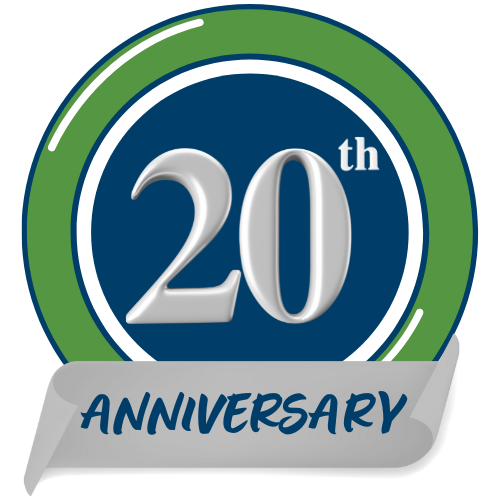As 2020 comes to a close so does another tax year. For many people looking at the year-end
W2’s or financial statements and seeing how much was paid in taxes is enough to launch visions of life in the Cayman Islands or some other tax haven. Assuming you are not quite ready to uproot and live in the middle of shark infested waters, you might want to start thinking about 2021 and what you can do to make sure you’re not in the same situation next year. One of the solutions might be to purchase a house. Buying a home is an exciting experience that can present many unique opportunities to put money back in your pocket.
While the first-time homebuyer tax credit that was available during the housing crisis in 2008-2010 is no longer around, there are other tax benefits to owning a home. Here are eight.
Mortgage Interest Deduction
This comes up in the political debates from time to time. Some want to do away with it, others don’t. Luckily for homeowners it’s still in place. This is probably the biggest tax advantage homeowners get. When you take out a mortgage to finance a home purchase a percentage of every payment goes to interest. This interest payment can, up to a limit, be deducted for tax purposes. It’s like having the government partly pay back the money you borrowed. If you buy a house now you can deduct up to $750,000, or up to $350,000 if you are married and filing separately.
Discount Points Deduction
Discount points are fees that are paid to the lender at the time of closing to secure a lower mortgage rate. Typically, one point is equal to 1% of your mortgage amount. Points can be one way of accelerating the deduction you get on your house. If they are used to secure your main home, do not cost more than is generally charged and are not paid in place of typical closing costs like appraisal or title fees, they might be deductible the year you paid them rather than spread out over the life of the loan. To be certain your points will qualify first check out the full IRS guidelines.
Mortgage Insurance Premiums
The cost of mortgage insurance is currently deductible. The deduction includes the amount paid for private mortgage insurance for conventional loans and mortgage insurance for FHA loans. It also includes the guarantee fee for USDA home loans and the VA funding fee for VA mortgages. The amount you pay for mortgage insurance is treated as mortgage interest, the IRS says. The mortgage insurance deduction had expired at the end of 2017, but Congress extended it to include premiums paid through the end of 2020. It remains to be seen if this will be extended further.
State and Local Tax Deductions
Assessors track the value of every piece of real estate in a city our county. The homes assessed value, or usually a percentage of the value, is then assessed a tax rate. These taxes are often based on the “millage rate,” where one mill is equal to one-thousandth of a dollar. Your tax rate might not be expressed as a percentage, but rather as some number of mills. For example, if the local property tax rate on homes is 15 mills, homeowners pay $15 in tax for every $1,000 in assessed home value. You can deduct up to $10,000 (or $5,000 if filing separately) of these property taxes. It’s important to keep in mind that you must claim your deduction in the year you actually make your payments. For example: because property taxes are usually paid quarterly, you might pay your first quarter taxes for 2021 in December of 2020. If that were the case, you might take a deduction for that payment from your 2020 taxes.
Home Office Deduction
With many people working from home due to Covid-19, 2020, the question remains… can you deduct a home office? This benefit is for those who own a business and not, as of now, for the employee working from home. But keep checking back with the IRS guidelines as this may change.
Medically Necessary Home Improvements
For people who want to “age in place” and others with general health issues the cost of installing health care equipment or other medically necessary home improvements that benefit you, your spouse or a dependent can be deducted. Permanent improvements that increase the value of your home are only partially deductible. The deductible cost is reduced by the amount of the property value increase.
Residential Energy Credit
In 2020 a homeowner can claim a credit for 10% of the cost of qualified energy efficiency and the amount of the residential energy property expenditures paid or incurred by the taxpayer subject to a limit of $500. Qualified energy improvements include these qualifying products:
- Energy-efficient exterior windows, doors and skylights
- Roofs (metal and asphalt) and roof products
- Insulation
Residential energy property expenditures include the following qualifying products:
- Energy-efficient heating and air conditioning systems
- Water heaters (natural gas, propane or oil)
- Biomass stoves
Tax-Free Profits on the Sale of Your Home
This is perhaps one of the biggest perks, tax free profits. Capital gains on houses are tax-free up to $250,000 if your single and up to $500,000 if your married filing jointly. To qualify for this tax break, you have to have lived in the house and used it as your primary residence for two out of the last five years prior to the sale.
So, while the Cayman Islands may have crystal clear waters and long beaches, the U.S. has something they don’t, tax deductions. It is good to fully understand how these tax implications can be positively affected when you decide to own a house. While this information highlights a few of the important features, it is always good to consult with an expert when it comes time to own a home.









